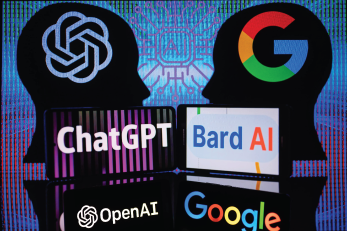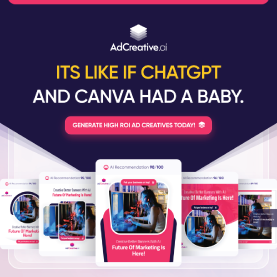The Emergence of AI as a Co-Creator
Traditionally, machines were tools, extensions of human intent designed to perform tasks with precision and efficiency. Generative AI, however, has transformed this paradigm. As Dougherty explains, “We are at a critical juncture where machines are not just executing commands but actively participating in the creative process.”
From generating lifelike images and composing music to drafting intricate narratives, AI is proving itself as a co-creator, augmenting human capabilities rather than replacing them. Dougherty believes that this collaboration is propelling humanity into uncharted territories of creativity, where the synthesis of human intuition and machine intelligence produces results previously thought unattainable.
Real-World Applications and Insights
Dougherty’s insights are grounded in real-world examples that highlight the transformative potential of generative AI:
- Art and Design:
- Generative AI is revolutionizing digital art by enabling artists to create complex, dynamic pieces with minimal technical expertise. Platforms like Remix AI empower users to collaborate with algorithms, creating art that blends personal vision with computational creativity.
- Content Creation:
- Writers and filmmakers are using generative models to brainstorm ideas, draft scripts, and visualize scenes. This partnership accelerates workflows and inspires new narrative directions.
- Product Innovation:
- Businesses leverage AI to conceptualize and prototype products faster, tapping into AI’s ability to analyze vast datasets and identify patterns that inform design decisions.
A Career Built on Innovation
Dougherty’s journey to leading Remix AI reflects a lifelong commitment to pushing technological boundaries. Before founding Remix AI, he co-founded Jelli, a social audio and advertising platform acquired by iHeartMedia. He also played key roles in scaling speech recognition platform Tellme (acquired by Microsoft) and digital music platform Loudeye (acquired by Nokia). As COO/CFO of Outdoorsy, he brought digital innovation to outdoor experiences.
Named on nine issued U.S. technology patents, Dougherty’s expertise extends beyond business. He is an avid collector of generative and AI digital art, which he views as both an investment and a testament to the profound capabilities of AI in creative expression.
Navigating Ethical and Creative Challenges
As with any technological leap, generative AI presents challenges. Issues such as copyright, bias, and the authenticity of AI-generated content need thoughtful solutions. Dougherty advocates for a balanced approach: “It’s crucial to foster innovation while ensuring that ethical frameworks guide AI’s integration into creative fields.”
This perspective emphasizes the importance of transparency, collaboration, and responsibility in advancing generative AI.
The Road Ahead: Humans and Machines as Creative Partners
Looking to the future, Dougherty envisions a world where generative AI becomes as ubiquitous and indispensable as the internet. But its role will go beyond convenience—it will be a true partner in creativity, helping humans solve complex problems, express ideas in novel ways, and push the boundaries of what is possible.
“Generative AI is not about replacing human ingenuity,” Dougherty asserts. “It’s about amplifying it, taking us to places we couldn’t reach alone.”
As CEO of Remix AI, Dougherty is leading the charge in this revolution, building tools that empower users to harness AI’s creative potential. His message is clear: we are only beginning to uncover what’s possible when humans and machines create together. The future of creativity is here, and it’s a collaboration like no other.


